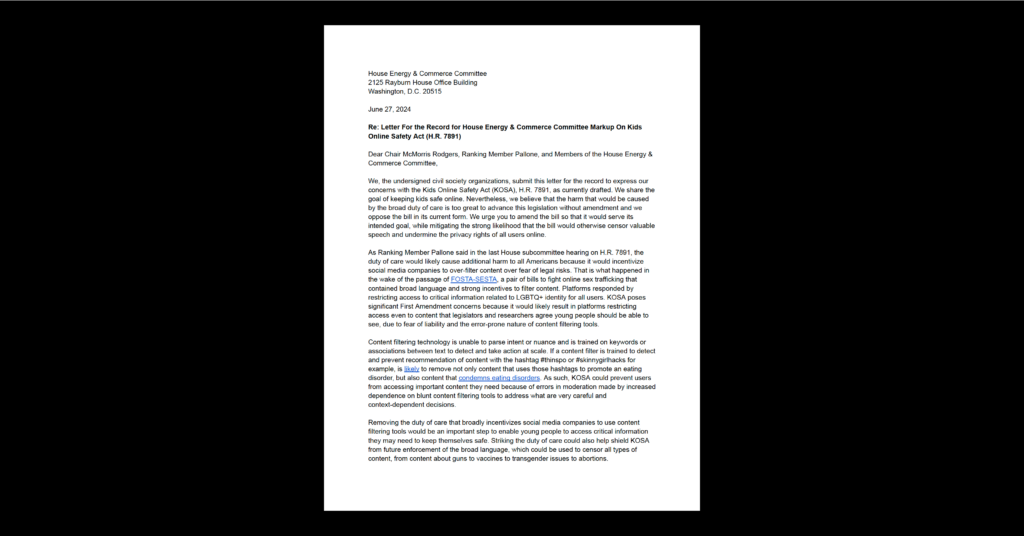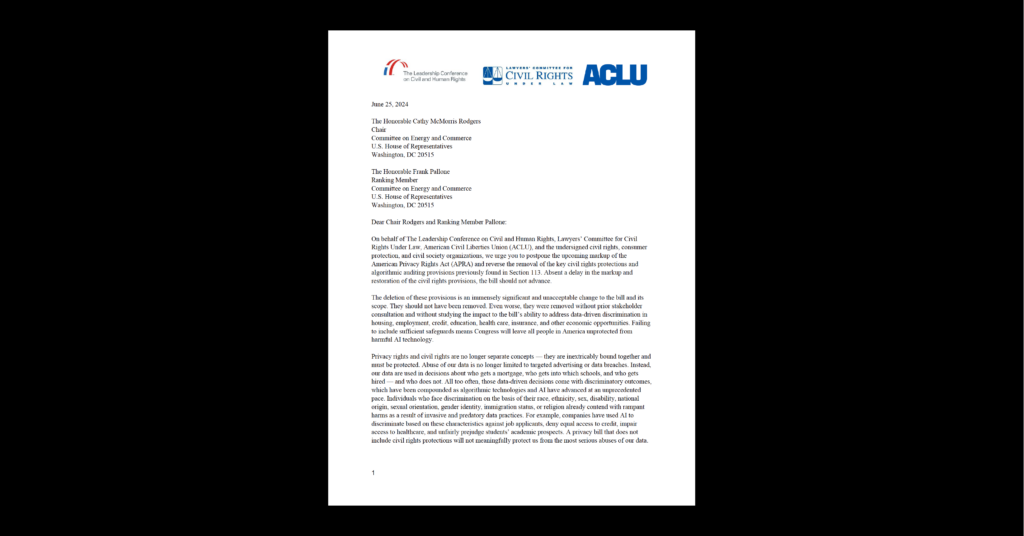Privacy & Data, Reproductive Rights
Update from our CEO: CDT Leads Breakthrough Work on Gender Justice
This week marked the second anniversary of the Supreme Court’s decision in Dobbs v. Jackson Women’s Health Organization, the case that overturned Roe v. Wade and eliminated the constitution’s federal protections for abortion.
That ruling put a bright spotlight on the importance of digital privacy in defending gender justice.
This week, CDT published a series of resources assessing the landscape for health privacy two years after Dobbs. In that time, CDT has helped inform new state laws and federal regulatory protections, while leading our Dobbs Task Force which brought together leading tech companies, reproductive rights groups, health and privacy experts from around the country.
- A CDT issue brief reviewed state “shield laws” in all 19 states where they’ve been enacted over the past two years.
- A CDT blogpost lays out how the regulatory landscape for privacy issues has changed since Dobbs — and how that affects the right to choose.
- A CDT op-ed in Tech Policy Press explores why the right to anonymity online shapes access to reproductive health information and care.
- Earlier this spring, CDT hosted the Department of Health & Human Services’s Office of Civil Rights Division chief Melanie Fontes-Rainer for a briefing on the new HIPAA Privacy Rule which CDT and our allies helped support.
Already, we’ve received feedback from reproductive care providers that our Shield Law Guide will help them make informed decisions about their obligations in various states.
But that’s not all.
On Tuesday, CDT, in partnership with the Cyber Civil Rights Initiative (CCRI) and the National Network to End Domestic Violence, announced a new multistakeholder working group tackling one of the thorniest challenges online today: the creation and distribution of Non-Consensual Intimate Imagery.
Our announcement comes in response to last month’s White House Call to Action to Combat Image-Based Sexual Abuse, which invited companies and other stakeholders to work together to address the profound harms of intimate image abuse.
When sexual images are shared without consent — or even threatened to be shared — the impacts can be profound; financially, psychologically and emotionally. This new working group brings together representatives of tech companies, trust and safety practitioners, experts in gender based violence, organizations representing impacted communities, and digital rights experts to develop new solutions to this profoundly difficult challenge.
These efforts are a prime example of CDT’s unique role in making change by leveraging our wide-ranging expertise, our deep commitment to civil rights and civil liberties, and our ability to gather stakeholders together for productive, important conversations.


